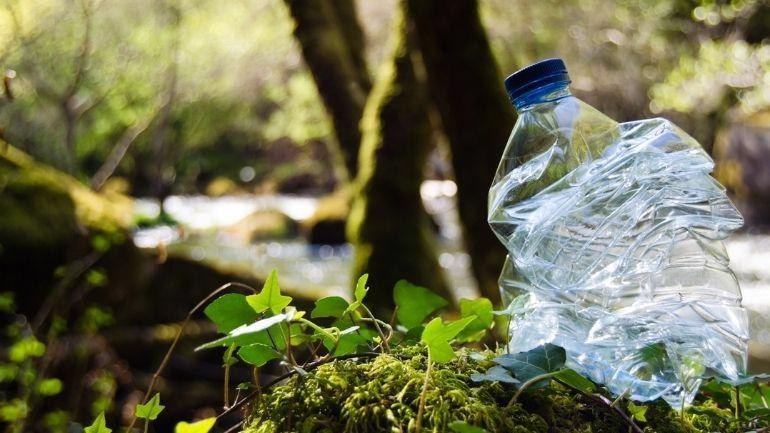Reviewed by Alex SmithSep 22 2021
A new study by researchers at the University of Leicester shows that plastic pollution clogs river systems for much longer than considered earlier.

Image Credit: University of Leicester.
Macroplastics constitute plastic litter with a size of more than 5 mm and travel considerably slower through river systems than previously thought. They travel at an average speed of less than 0.01 km per hour and can stay in place for lengthy periods of time.
When left unremoved, this pollution might not only ultimately occur in the ocean but is also likely to have a negative impact on marine wildlife and human uses of river systems. Polyethylene terephthalate (PET) is a common material used in single-use plastic bottles and takes more than 450 years to break down with UV light.
Robert Newbould, a PhD researcher within the School of Geography, Geology and the Environment at Leicester, headed a proof-of-concept study alongside Dr Mark Powell and Professor Mick Whelan, which is considered to be one of the first of its kind.
The research involved monitoring 90 PET sample plastic bottle “tracers” introduced into a tributary of the River Soar near Wistow, Leicester. Each tracer traveled a distance of 231 m in 24 hours on average, with the furthest distance found to be just below 1.1 km.
We were surprised at how easily the plastic bottles were trapped and their relatively low travel distances. Our work supports other research that existing estimates of riverine plastic flux to the ocean may have been overestimated, but more research is needed to confirm this.
Robert Newbould, PhD Researcher, School of Geography, Geology and the Environment, University of Leicester
The team recovered 96% of plastic tracers from the river system toward the end of the study, while also retrieving other litter to ensure a net reduction in macroplastic pollution.
The research was completed while Robert undertook an MPhil in Physical Geography. His PhD is financially supported by the Central England NERC Training Alliance (CENTA), a consortium of six research-intensive Universities and research institutes collaborating within the remit of the Natural Environment Research Council (NERC).
The University of Leicester also includes the Centre for Landscape and Climate Research, which performs discovery-led and applied research to deal with critical global challenges, often in partnership with industrial partners.
The research themes include water and carbon cycle connections, Earth Observation methods for better ecosystem monitoring, and understanding human interactions with the environment.
Journal Reference:
Newbould, R. A., et al. (2021) Macroplastic Debris Transfer in Rivers: A Travel Distance Approach. Frontiers in Water. doi.org/10.3389/frwa.2021.724596.